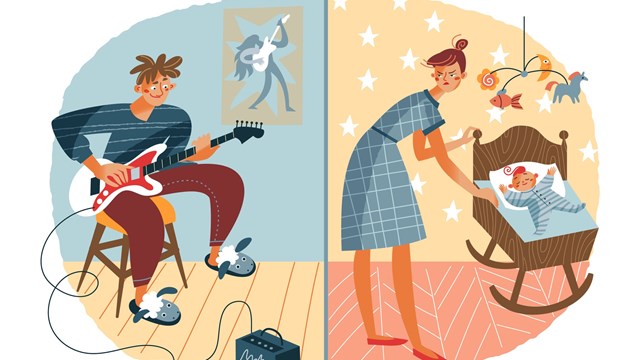
Q This seems to be a perennial problem for anyone living in a multifamily community. Our upstairs neighbors always have loud noises coming from their unit—sometimes it emanates from the television or it could be coming from music and video games. Our condo building is older and thus is not very well-soundproofed. Everything can be heard from above. And additionally, our bylaws are no help. They don’t really specify any rules about noise transmission except that it has to be “reasonable” and cannot occur between the hours of 10 p.m. and 8 a.m. Unfortunately, the noise occurs outside of those hours and becomes quite disruptive to us. We tried speaking to the neighbors about it and suggested some type of compromise but to no avail. They claim that it isn’t that loud at all. What can we do? Please advise.
—Seeking Peace and Quiet in Portage Park
A “Chicago has many older buildings converted to condominiums, which are subject to problems of noise transmission between units or into the common elements of the building,” says Chicago-based attorney Barry Kreisler, founding partner with the law firm of Kreisler Law, P.C.
“There are at least three approaches which you can take to deal with the problems you are experiencing, but you may want to do some investigation and fact gathering before moving forward, to build the case for obtaining assistance in resolving your problem. This might include buying or renting a metering device to measure the sound level in your unit at various times of the day and night as well as researching what levels of sound are acceptable to most people. Once you are ready to move forward, you can consider these options: “First you can ask your condominium's board of managers to consider and adopt a rule as to floor coverings and noise abatement between units. The boards of many older condominium buildings have adopted rules requiring carpeting or other noise reduction measures in certain rooms, to deal with the problem that the older buildings frequently have hardwood floors and no sound insulation between floors.
“You can also ask your condominium board to adopt some more specific rules as to permissible noise levels emanating from any unit into another unit or into the common areas of the condominium. Such a rule could be expressed in permissible decibel levels, to provide an objective limit on noise and to permit verifiable and objective enforcement by the use of decibel measuring meters.
“Finally, most condominium declarations provide that nothing shall be done willfully or negligently by the occupant of one unit which causes an unreasonable annoyance or a nuisance to other unit owners or occupants. If the noise problem is significant enough to constitute a nuisance, the board actually could, if it chose to do so and after notice to the offending unit owner and an opportunity for the unit owner to cure the problem, maintain an action to dispossess the offending unit owner from his unit. If the board is unwilling to maintain such as action, you could sue the offending unit owner in the Chancery Court, seeking an injunction against the nuisance.”






Leave a Comment